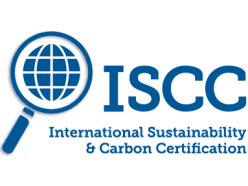Why You Need to Reduce Your Business’s Food Waste
- Commercial
- -
In a Government strategy unveiled by the Environment Secretary in December 2018, it announced its aim to reduce, reuse, and recycle more waste. It stated that it wanted the whole of society, not just businesses, to work together to move away from being a ‘throw-away’ society to one that looks at waste as a valuable resource.
Understanding the economic and environmental benefits of reducing commercial food waste not only benefits your business, the local environment and long-term sustainability, but it can also lend its hand to extending the education of food waste recycling to your consumers too.
What is food waste?
Simply put, it’s ‘any food and inedible parts sent to a specified list of food waste destinations, where “food” is defined as any substance that was at some point intended for human consumption.’ – WRAP
That being said, it also includes crops that could not be harvested or were harvested but not used due to fluctuations in demand. Then, further down the supply chain, it includes unsold food, both prepared and unprepared. We delve into this a little deeper in our ‘Understanding the Food Waste Hierarchy’ article if you’d like to learn more.
How much food waste do we generate as a country?
According to the charity Waste and Resources Action Programme (WRAP), the combined food waste produced in the UK is around 10 million tonnes a year.
This, in turn, could be responsible for producing around 36 million tonnes of greenhouse gas emissions.
In monetary value, this costs about £19 billion. If it is all sent to landfills, that is a considerable blow to the economy.
What are the benefits of food waste recycling for businesses?
As we mentioned earlier, food waste has a cost attached to it. By recycling it, you can mitigate some of your losses whilst also benefitting the environment. Here are just four of the many benefits of recycling your food waste we see for businesses.
Money saving
Most businesses will have some sort of wastage factored into their budget, not just those that work with food products. So, as a business owner, you have a duty of care and must follow regulations when disposing of food waste.
That is especially true if your business needs to dispose of cooking oil as part of your food waste.
These regulations mean you must sort food waste into appropriate categories and prepare the correct documentation before disposal. Doing so in-house is costly in both time and money, so that’s where engaging the services of a food waste management specialist comes in to help.
BioteCH4 can take on some of that load from you.
We will remove your food waste from your premises and store it with us before processing it. We’ll also take care of all the required permits and paperwork and cover the management and disposal of packaged waste.
That means you don’t have to allocate funds or workforce towards this. Result! You’ve saved yourself one less headache.
Less bulk for landfills
Most people assume that, since food is biodegradable, it will decompose and become part of the soil. Unfortunately, that’s not the case.
Organic material becomes part of the soil through the process of composting, one of which requires airflow; that becomes tricky to do when we cram all our waste into landfill, and air isn’t able to circulate.
It makes sense then that we should lessen the load for landfills by recycling food waste through anaerobic digestion, does it not? More importantly, the by-products of recycling can be used as biofuel and fertiliser, fueling a circular and more sustainable economy.
We should also keep in mind that in order to create more space for landfill, we do this by stripping the land of existing trees and vegetation, which in itself is an oxymoron…
Reduction of greenhouse gases
As we mentioned earlier, food waste in landfills does not break down into the soil and compost as it doesn’t get enough air. Instead, that food then goes through a different process; anaerobic decomposition.
This process releases the greenhouse gas methane (CH4), and as we know, greenhouse gases contribute to global warming. The worst culprits are water vapour and carbon dioxide (CO2), with methane coming in third.
Recycling food waste using anaerobic digestion means we are able to extract the methane that is produced in a controlled environment, meaning the gases don’t enter the atmosphere. It can then be reused as biofuel instead, and any remaining solid waste, or digestate, is then used as fertiliser on local farmlands,
Green credentials
Food and drink manufacturers know they need to provide quality, keenly priced and attractive products to the consumer to stay competitive, but they are also under increasing pressure to develop, produce and maintain sustainable ways of reducing and recycling their waste.
Customers in today’s world are very conscious of business values. They will often align themselves with businesses that share their beliefs.
By recycling your food waste, you can become a ‘green’ business that cares for the environment. This not only improves your reputation but will also help you attract customers that are looking for sustainable businesses to work with.
In addition, if your business produces GHGs or affects the environment in any way (Streamlined Energy & Carbon Reporting (SECR)), you have to report it to the government. By recycling your food waste, you naturally have fewer pollutants to report.
How can BioteCH4 help you with your food waste?
If you are thinking about moving your business model to a more environmentally friendly approach, food waste recycling should definitely be one of the considerations. We are more than happy to help design a food waste recycling plan for you to get you on the right path to being a more eco-considerate business.
It’s fair to say that not every business finds a service that ticks every box in terms of their specific requirements, so our experienced team will work with you to understand your needs and create a plan bespoke to your business.
We’ll take control of as much or as little as you need us to and support you with regular meetings, reports and environmental data to report impact as a direct result of working with us.
Here is a list of some of the food waste we can help you with:
- Packaged food waste
- Out-of-date food from shops and supermarkets
- Bakery waste
- Manufacturing, food and drink processing waste
- Industrial food by-products
- Food preparation waste & leftover food from restaurants
- Solid and liquid waste from agriculture
For a more in-depth conversation with a member of our team about how to reduce commercial food waste and the benefits your business can achieve, contact us today.



